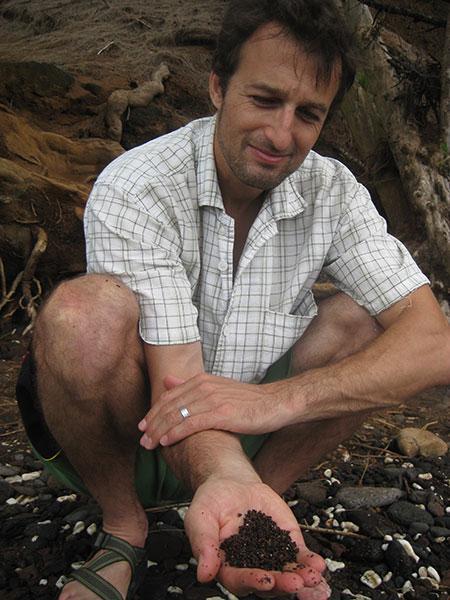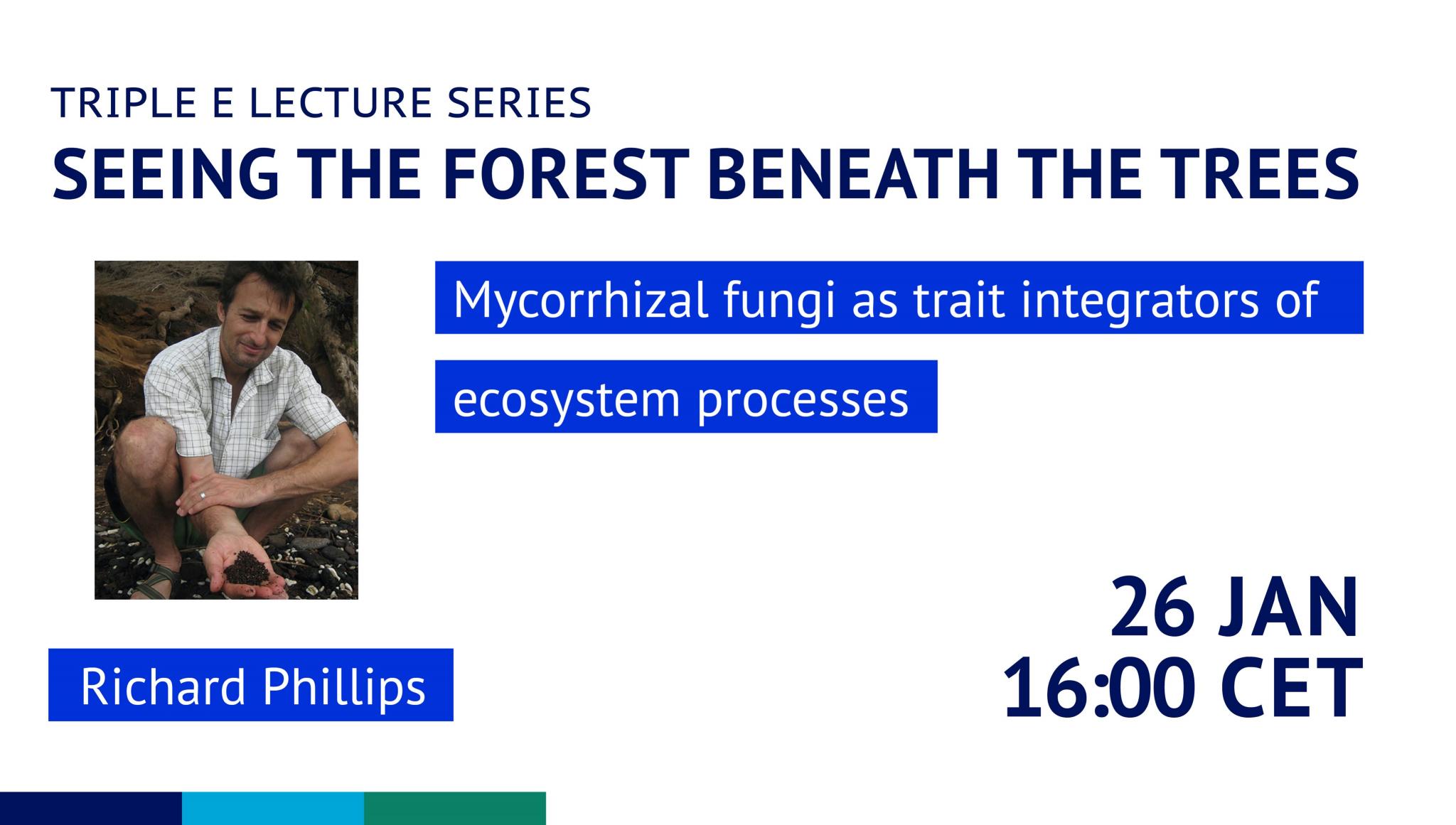Global changes are shifting the distribution and abundances of species globally, yet the consequences are poorly understood. Prof. Richard Phillips presents a framework that seeks to unify the heterogeneity of plant-microbe-soil interactions, as a means for predicting the impacts of community change on ecosystem functioning.
The Mycorrhizal-Associated Nutrient Economy (MANE) hypothesis predicts that species that associate with different types of mycorrhizal fungi possess an integrated suite of nutrient-use traits that lead to the maintenance of biogeochemical syndromes. His research results suggest that shifts in the relative abundance of arbuscular mycorrhizal (AM) and ectomycorrhizal (ECM) fungi in trees may have profound implications for forest sensitivity to global change.
 Richard P. Phillips is a professor and the scientific director at the Department of Biology, Indiana University. His research seeks to quantify and better understand how plants and soil microbes influence energy flow and nutrient cycling in terrestrial ecosystems in the wake of human-accelerated environmental change. Of particular interest is the degree to which plant-microbial interactions in soils influence feedbacks to regional and global change through their effects on ecosystem carbon storage and nitrogen and phosphorus retention.
Richard P. Phillips is a professor and the scientific director at the Department of Biology, Indiana University. His research seeks to quantify and better understand how plants and soil microbes influence energy flow and nutrient cycling in terrestrial ecosystems in the wake of human-accelerated environmental change. Of particular interest is the degree to which plant-microbial interactions in soils influence feedbacks to regional and global change through their effects on ecosystem carbon storage and nitrogen and phosphorus retention.
The Energy - Ecology - Environment (Triple E) lectures are a cross-disciplinary lecture series organised by the Leiden-Delft-Erasmus Centre for Sustainability and Leiden University where globally renowned and inspiring thinkers and scientists are invited. 
